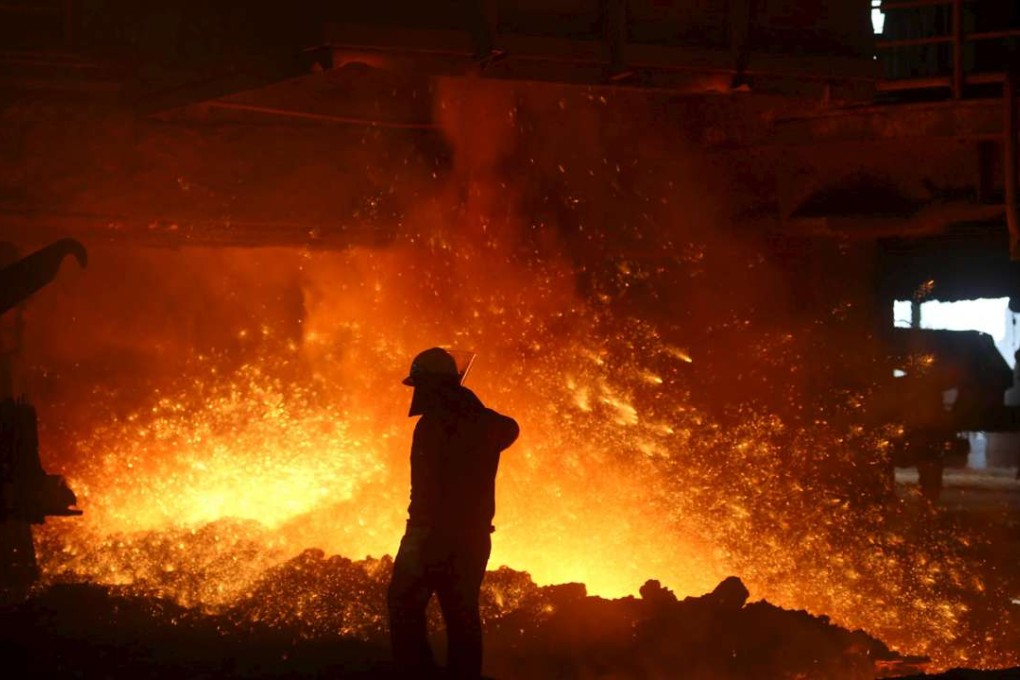Baosteel-Wisco marriage sets stage for faster steel industry consolidation

The landmark merger of Baosteel Group and Wuhan Iron and Steel Group (Wisco) will help quicken consolidation of China’s steel sector, bringing important reforms back on track that had fallen behind expectations of senior economic planners in Beijing.
But Beijing’s efforts to combine the nation’s largest steel mills will only be effective in curbing excess capacity if low steel prices and industry barrier regulation enforcement persist, according to some analysts.
“We do not think that [such a merger] will have an immediate impact on the overall sector capacity elimination,” Fitch Ratings director of Asia Pacific corporates Laura Zhai said in a note. “Small steel mills in China do not compete with Baosteel and Wisco, which produce high-end steel products. Smaller [inefficient] mills are not likely to be eliminated without the enforcement of more stringent environmental requirements and prolonged low prices.”
Citi’s metals and mining analyst Jack Shang said in a note that although news of mergers and capacity closures would support short-term investor sentiment toward China’s steel sector, he is cautious on the outlook since the government’s concern about non-performing loans remains a stumbling block for large scale plant closures.
China’s steel industry has 1.2 billion tonnes of annual excess capacity, particularly for low-end products. Average plant utilisation fell from 89 per cent in 2006 to 67 per cent last year, according to the World Steel Association.
China’s steel demand has been on a downward trend since hitting an annual growth rate of 18 per cent in 2005. Beginning in 2014 China’s annual steel consumption contracted by a low single-digit percentage.